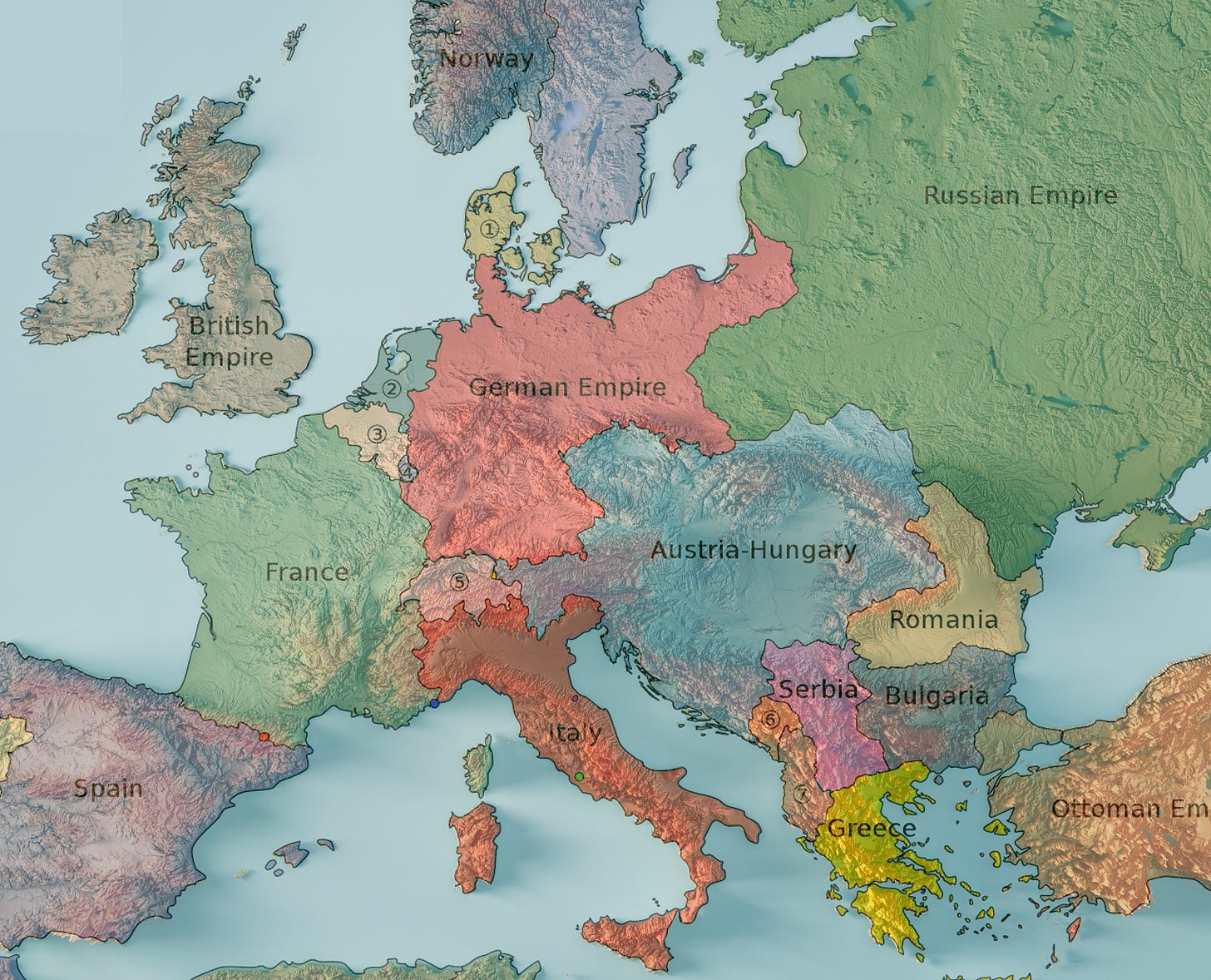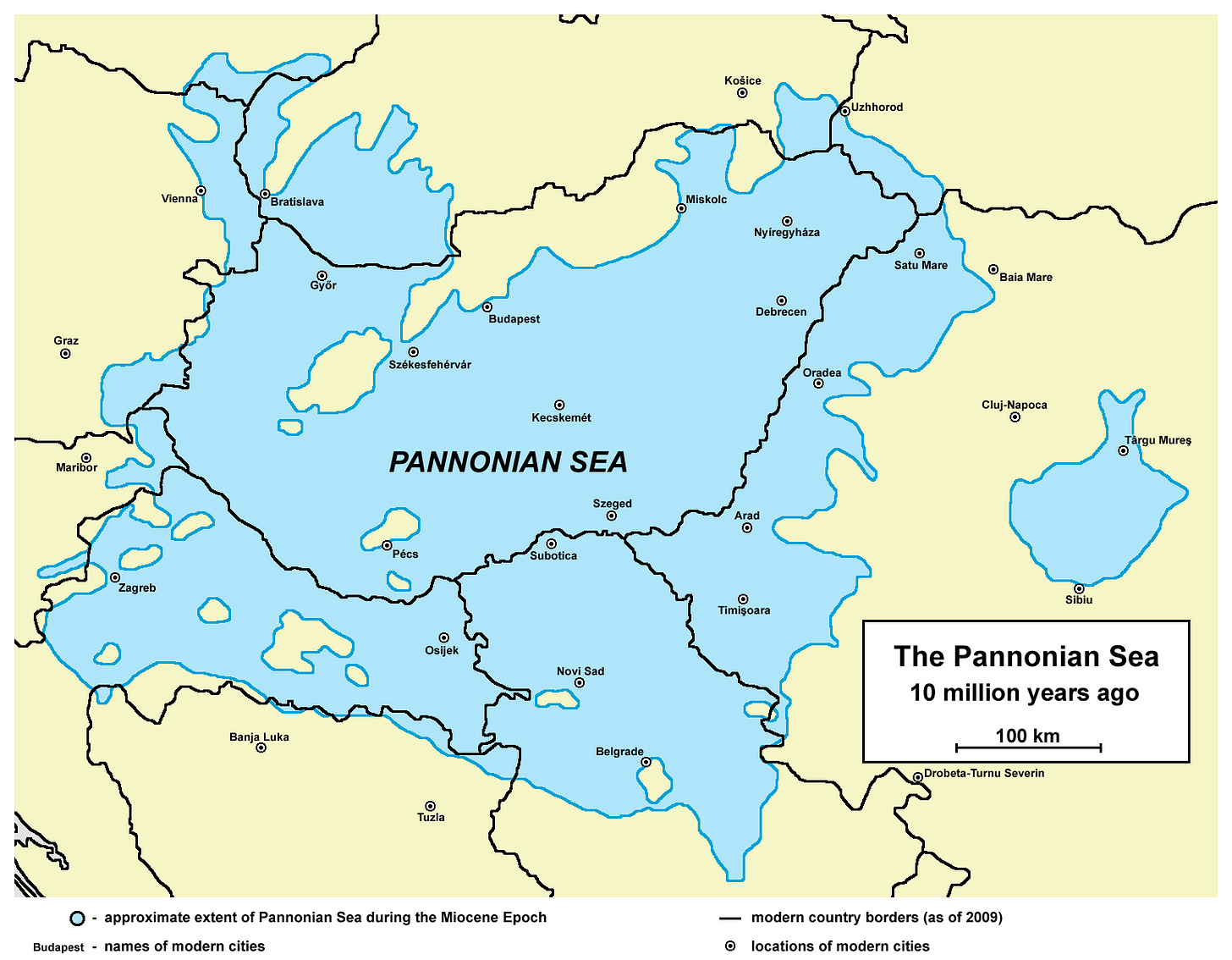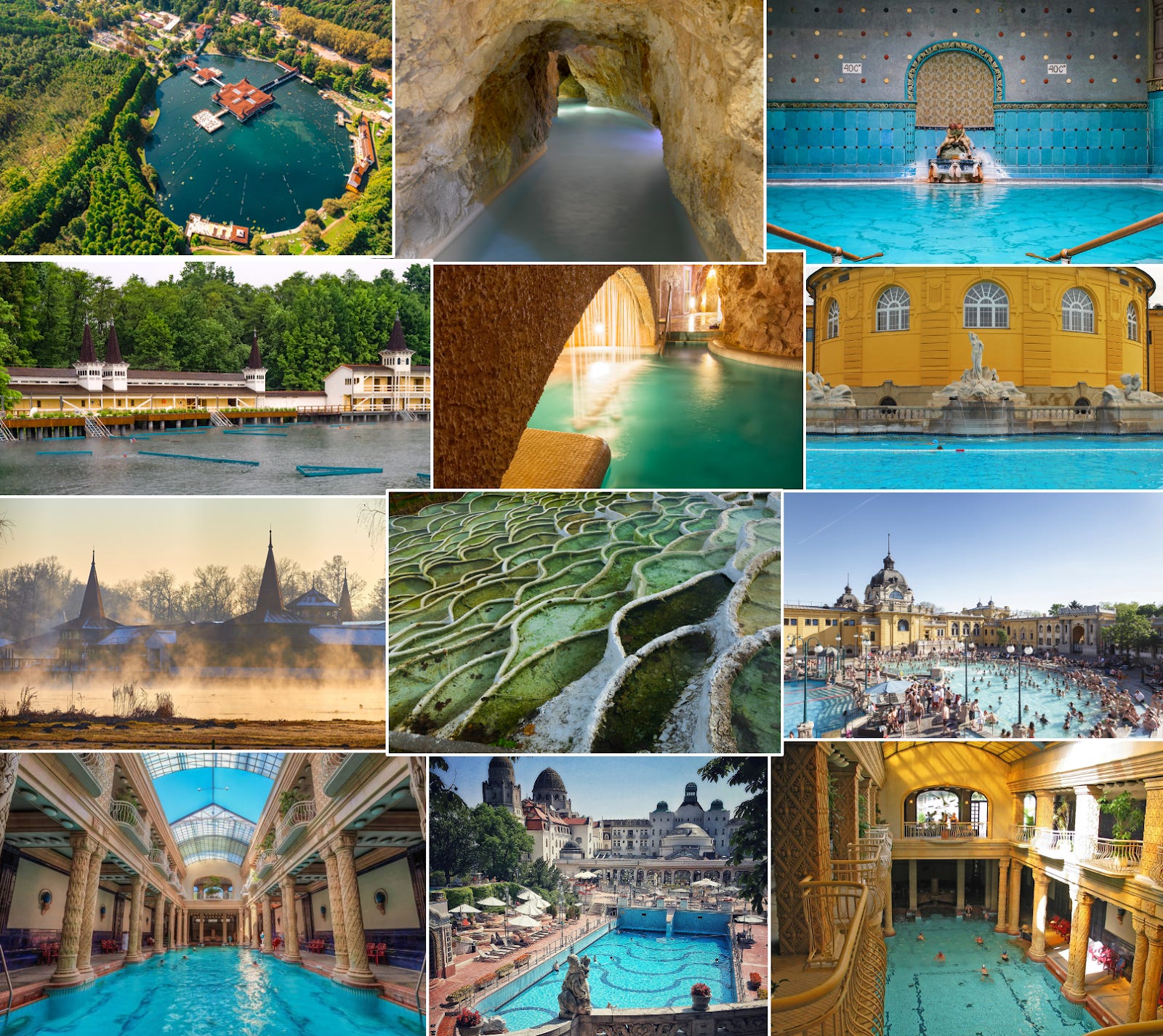What Made Hungary Brilliant?
Water and Something Else
This week’s article is paywalled, among other things because it’s spicy. I’m lightly touching on the most taboo topic there is today. It is not the only taboo topic I’ve explored, so much so that I’m considering creating a new tier of articles—Unspeakable Territories—to cover all the stuff that would normally get me cancelled by either or both sides. The rule would be to make that tier so hard to get into that those who do will not filter out the content. What do you think? Should I do it?
Hungary is a small country, but it has historically punched way above its weight in two areas: geniuses and sports. Why?
The answer is linked to some other key questions about Hungary:
Why is the capital named Budapest?
What were Romans doing in Hungary?
And why didn’t they conquer the entire Pannonian Basin?
Why is the country full of pools?
Let’s explore!
Gold Medals
Only seven countries have won more Summer Olympic gold medals than Hungary: the US, Russia, China, Germany, the UK, France, and Italy. Hungary is much, much smaller than any of them, with a population of less than 10M. It’s the country with the most gold medals per capita. Why?

There are a bunch of reasons. First, when sports were starting in Europe at the end of the 1800s, Austria-Hungary was one of the biggest world powers, along with the UK, France, Germany, and the emerging Russian and dwindling Ottoman Empire.

This is right when countries were forming their national identities, and education was focused on creating good future citizens and soldiers. Sports education was a core part of that.
During the Cold War, the Communist Bloc–including Hungary–was especially keen on using the Olympics as a pissing contest, and invested heavily in Olympic training. All Eastern European countries did well in sports. Still, Hungary was the best of the bloc per capita.
One of the reasons is water. 40% of Hungary’s medals come from water-based sports like swimming, canoeing, rowing, sailing, and pentathlon. Hungary has the strongest water polo team in the world. How is that possible for a land-locked country?
Hot Water
Hungarians love water because the country is peppered with hot springs. Budapest has more mineral hot springs (123) than any other capital city in the world. The country has over 1,300.

This is one of the reasons why the Romans created Aquincum here, naming it after the Latin word for water (aqua).1 I think you saw this picture in the other article:
But why are there so many hot springs?
Water Sources
The Pannonian Basin used to be the Pannonian Sea.

Of course—all these mountains surrounding a basin concentrate water, and if water can’t escape, it becomes a sea.
But why is it flat, with mountains around it? The mountains come from the collision of the European and African plates.
As you can see, in some areas there are mountains, but in others there are seas. The Mediterranean is the perfect example of that. The Pannonian Basin is a back-arc basin, basins that form behind plate subduction zones.
Back-arc basins, therefore, are not only located behind mountain ranges, but they also provide heat to the crust—a heat that warms up the water accumulated in the basin. And voilà, thermal springs.
Some of these springs are so huge, and the water table so high, that they form lakes. The biggest one in Central Europe is in Hungary:
So if Hungarians are good at water polo in particular, water sports in general, and broadly, Summer Olympics, it’s in part because they have lots of natural pools, a feature of life in a geological basin surrounded by mountains. It’s the same reason why Hungary is located in a fertile, well-defended plain, which explains why Hungary is one of the oldest nations, having survived for over 1,000 years. It’s also why Budapest is situated at the perfect point in that plain to connect the two sides to each other and to the rest of the world.
Hungarian Geniuses
But Hungarians are not just good at sports. They’ve also made an unbelievable intellectual contribution to the world. It’s in the top 10 of countries with the most Nobel Prize winners per capita, across all disciplines.2 How come?
Jews account for 0.2% of the world population, but 22% of Nobel laureates. In Hungary, 70-80% of its Nobel laureates are Jewish! If you remove these Jewish laureates from the total, Hungary’s data reverts to the mean: its number of Nobel laureates per capita becomes the same as in other Western countries.
The contribution of Hungarian Jews is not just to the number of Nobel laureates. Some of the most prominent US scientists of the 20th century were Jewish immigrants from Hungary, including John Von Neumann, perhaps the most intelligent person of the century.
Q: “Why is there no evidence of life beyond Earth? Where are the extraterrestrials?”
LEO SZILARD: “They are already here among us – they just call themselves Hungarians."
A group of Hungarian Jews who emigrated to the US led the Manhattan Project.
Jews were also a majority of Hungary’s Summer Olympic gold medalists until WWI.3 So the majority of Nobel laureates, geniuses, and Summer Olympic gold medalists in Hungary have been Jews, despite accounting for only 4% of the Hungarian population before WWII.4
How come Jews were so exceptional?







